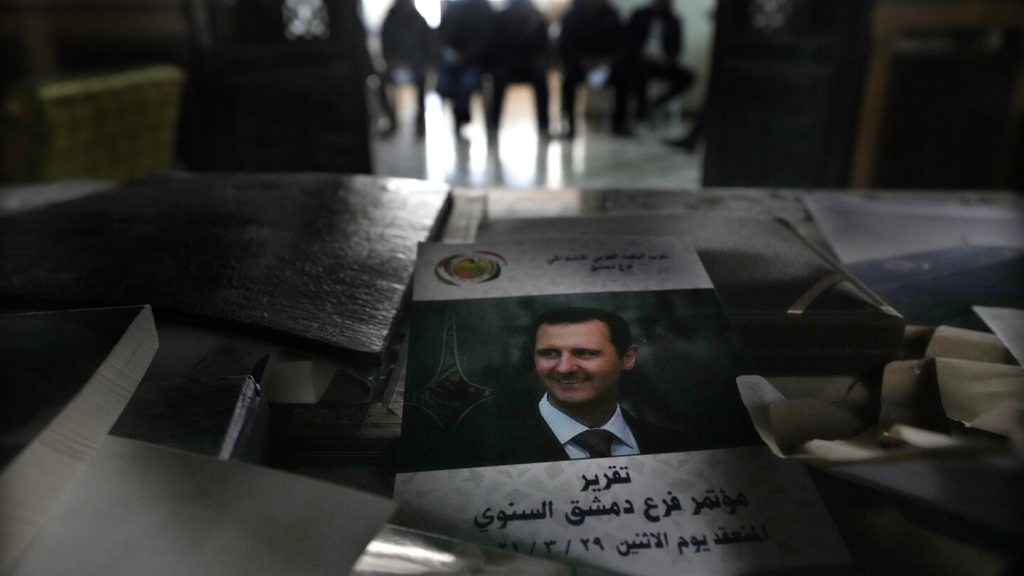In a surprising turn of events in Syria, insurgents have successfully overthrown President Bashar Assad, leading to the ruling Baath party announcing the freezing of its activities. This marks a significant change in the political landscape of the country, as the party had held power for over six decades. Many party members, including top leadership, have gone into hiding or fled the country. The former party headquarters in Damascus has now been converted into a center where former members of the army and security forces are registering their names and surrendering their weapons.
There are increasing calls to officially dissolve the Arab Socialist Baath Party, which has ruled Syria since 1963. Many Syrians, including former party members, believe that the party’s rule damaged relations with other Arab countries and contributed to the corruption that has plagued the nation. Some individuals, like Mohammed Hussein Ali, who was a party member for decades until the start of the anti-government uprising in 2011, view the end of Baath rule as a positive development and express relief at its demise.
The future of the Baath party remains uncertain, as the group that led the insurgent offensive, Hayat Tahrir al-Sham (HTS), has not made an official decision on its fate. HTS leader Ahmad al-Sharaa has indicated that officials who committed crimes against the Syrian people over the years will be held accountable, possibly including party members. The Baath party, originally founded to unify Arab states, eventually became synonymous with the Assad family’s rule in Syria, with strong ties to the military and security apparatus.
The party’s legacy in Syria is tainted by decades of control and suppression, with membership often required for access to employment and government positions. The removal of a constitutional paragraph declaring the Baath party as the leader of the nation and society in 2012 was a symbolic move to placate demands for political reforms. However, the party continued to wield power, with members holding significant influence in parliament and government. The current dismantling of the party signals a significant shift in the political dynamics within Syria.
While many Syrians are relieved by the fall of the Baath party, concerns remain about the potential consequences of Sunni majority control in the country. There are fears of a purge akin to the de-Baathification process in Iraq following Saddam Hussein’s fall, which led to sectarian tensions and gave rise to extremist groups. Despite some former members expressing hope for a reformed party in a multiparty democracy, others, like former soldier Ghadir, fear reprisals and further destabilization in the country. The transition away from Baath party rule marks a critical juncture in Syria’s political history, with the future direction of the country hanging in the balance.


